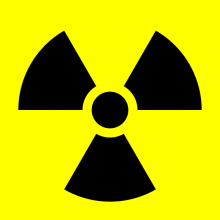The Islamic Republic of Iran could be just 18 months away from having the ability to develop the nuclear fuel for a nuclear weapon, according to a new report from a group of experts in the field. The report’s authors—The Project on U.S. Middle East Nonproliferation Strategy—called upon the US and its allies to increase the pressure on Iran before they acquire “critical capability,” the nuclear weapons threshold that has also concerned Israel.
The report defines that capability as being able to produce enough weapons-grade uranium to build at least one nuke “before the production of such an amount can reasonably be expected to be detected” by the West. And the US doesn’t have a lot of time before Iran could reach that dangerous point.
The report, “U.S. Nonproliferation Strategy for the changing Middle East”—which was posted on the ISIS Nuclear Iran website—said that “based on the current trajectory of Iran’s nuclear program, we estimate that Iran could reach critical capability in mid-2014.”
While the report does note that a variety of factors could speed up or slow down such a timeline, they recommend the US act cautiously and prepare for the mid-2014 estimate.
Israeli Prime Minister Benjamin Netanyahu expressed his own warnings about a similar “critical capability” in his speech to the United Nations last September. At the time, Netanyahu said Iran could have enough nuclear fuel enriched to 20 percent—which could be further enriched to weapon’s grade in a few months or less—by spring or “at most” by summer of 2013. That was enough for the Israeli buy valium brand leader to make that his proposed “redline.”
The new report pushes their own redline estimate a year further out, but still warns like Netanyahu that once Iran reaches that critical stage it will be “far more difficult to stop the [Iranian nuclear] program militarily.” Instead of relying on large nuclear fuel enrichment facilities, the bomb assembling process can be done in “small, undetectable facilities.”
Recommended Action
In light of the concerns about the progress of Iran’s nuclear program, the “U.S. Nonproliferation Strategy for the changing Middle East” report calls for economic sanctions to be significantly intensified, possibly to the point of a de facto trade embargo on Iran. Such an embargo, which would not include humanitarian goods, would be enforced by US sanctions on companies that continue to trade with Iran in other areas.
The report also recommends the US give a “crystal clear message” that they will use military force if necessary to prevent Iran from acquiring nuclear weapons. This can be done by making further “overt preparations” with warplanes or missiles that could be used in such an attack, as well as an explicit threat of force from President Barack Obama.
Netanyahu too has long called for the West to give an overt redline to Iran. The report suggests threatening military action if “Iran takes additional decisive steps toward producing a bomb” such as producing weapons-grade uranium, building more secret nuclear facilities or expelling United Nations nuclear inspectors.
(By Joshua Spurlock, www.themideastupdate.com, January 15, 2013)

